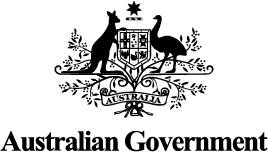On 28 March 2025 the government assumed a Caretaker role. Information on websites maintained by the Department of Climate Change, Energy, the Environment and Water will be published in accordance with the Guidance on Caretaker Conventions until after the conclusion of the caretaker period.
Audit finds discrepancies in Border Rivers water trade
Audit finds discrepancies in Border Rivers water trade
Audit finds discrepancies in Border Rivers water trade
The Inspector-General of Water Compliance (IGWC) the Honourable Troy Grant today released a report on an audit into interstate water trade in the Northern Basin. This trade occurs in the Border Rivers region which covers a section of Northern New South Wales and Southern Queensland with separate trading rules across the two state jurisdictions.
In releasing this report, Mr Grant recognised that the audit found discrepancies in the water trade market, which he says are concerning.
“Issues identified in this audit, such as water being traded from one state but not appearing in an account in the other state, incorrect volumes being recorded in water accounts, and manual adjustments being made by the authorities without documented explanations mean that users cannot be confident their water is being appropriately recorded and accounted for. Despite the current La Niña conditions, water is a finite resource. In the case of irrigators, it is an essential element of their business. Water owners need to have confidence that the value and amount of water is not at risk of being diminished through poor accounting,” said Mr Grant.
The audit also found that WaterNSW as the body responsible for water trade in NSW, does not require a meter read before a trade occurs. Without a meter read, it is difficult to determine whether the water is actually available to make a trade. While this isn’t illegal, Mr Grant says it’s an unfair way of operating the water market, especially for other areas in the Basin which do require a reading.
“Without knowing whether there is enough water available for a trade is like a bank transferring money from your account without checking to see if you have the available funds. The bank won’t transfer $50,000 if it sees you don’t have $50,000 in your account. It shouldn’t be any different with a water trade. Someone needs to make sure the water holder actually has the water available to make a trade first,” said Mr Grant.
Another significant concern identified from this audit was the transfer of water through works that are permanently linked which are not recognised as trade by either NSW or QLD. This is inconsistent with how trade is defined by the Basin Plan.
“The failure to recognise the transfer of water in this manner as a trade means that they are not subject to the same checks and balances as an allocation trade and are a major factor in the accounting discrepancies identified. This also adversely affects interstate water trade information provided to the Murray-Darling Basin Authority for determining SDL compliance, and the Bureau of Meteorology for public reporting.”
“It is critical that New South Wales and Queensland address findings from this audit to improve public trust and confidence in how interstate water trade is accounted for in the Northern Basin.”
The IGWC publishes all its reports on its website. To read the Border Rivers trade audit report in full, visit www.igwc.gov.au/reviews-reports.





